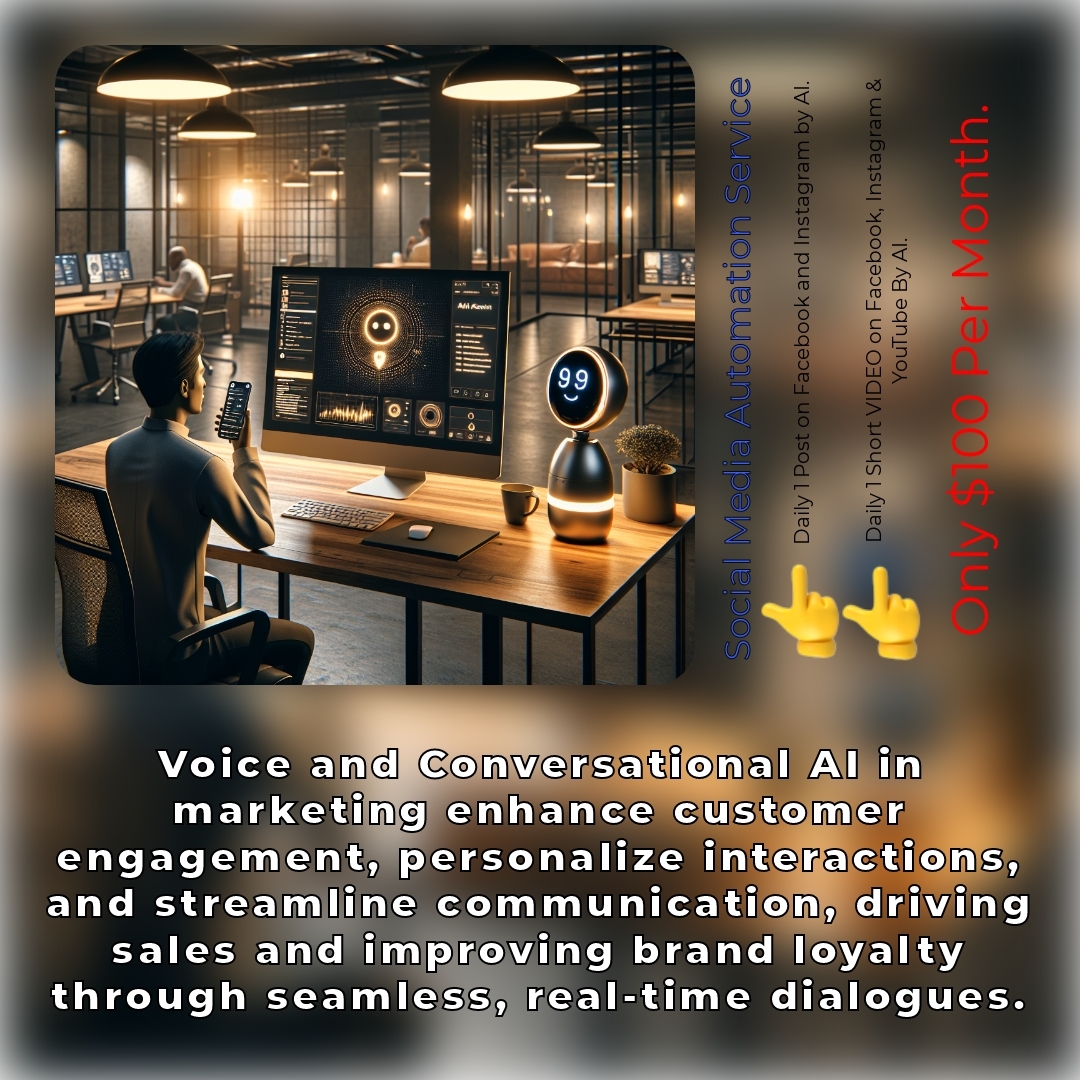As marketing evolves, voice and conversational AI emerge as pivotal tools for enhancing customer interactions. Voice assistants and AI chatbots play a critical role in personalizing experiences and streamlining communication. This article explores the landscape of voice and conversational AI in marketing, highlighting its significance and impact on customer engagement.
“Conversational AI transforms marketing by building authentic connections effortlessly.”

Understanding Voice and Conversational AI
What is Voice AI?
Voice AI is all about using technology to understand and respond to human speech. This works through voice recognition technology, which captures what you say, and natural language processing (NLP) that interprets the meaning behind those words. Voice assistants like Alexa and Google Assistant are prime examples of how businesses use this technology to connect with customers in a more personal way.
What is Conversational AI?
Conversational AI takes marketing a step further by enabling real-time, personalized interactions through platforms like AI chatbots. Unlike traditional customer service methods, chatbots can engage customers in a dynamic conversation. This forms a significant part of conversational marketing, which prioritizes the user experience and encourages deeper customer engagement. After all, who doesn’t appreciate a quick and helpful response when they have a question?
Benefits of Voice and Conversational AI in Marketing
Enhancing Customer Engagement
One of the most exciting aspects of voice technology is how it improves customer engagement. With personalized experiences powered by AI, businesses can create meaningful connections. Imagine a customer asking a voice assistant for recommendations that cater to their unique preferences. That’s the power of tailored interactions at work!
Boosting Sales and Conversions
Conversational AI can seriously boost sales and conversions. Brands are using AI in their marketing campaigns to generate more sales leads. For instance, a well-known beauty brand used a chatbot to guide users through product selections, resulting in a notable increase in sales. These successful cases highlight the effectiveness of voice assistants in all aspects of marketing and sales.
Streamlining Automated Customer Service
Automation is another vital area where voice and conversational AI shine. AI chatbots can handle countless queries simultaneously, offering immediate support to customers—something traditional customer service teams often struggle with. By integrating multichannel marketing strategies, businesses can reach a wider audience and provide efficient customer service across various platforms.
Implementing Voice and Conversational AI in Your Marketing Strategy
How to Use Voice AI in Marketing Strategies
To effectively integrate voice AI into your marketing strategy, follow a few simple steps:
- Identify your target audience and their preferences.
- Develop content that’s optimized for voice search.
- Incorporate voice assistants into your mobile and web platforms.
These best practices can help optimize your overall strategy and ensure that you are making the most of voice technology.
Improving Customer Engagement with Voice Technology
Utilizing voice technology can greatly enhance customer engagement. Here are some techniques:
- Create voice-friendly content that is easy to digest.
- Encourage feedback through conversational AI interactions.
- Implement targeted voice marketing campaigns based on user preferences.
These strategies will help you tap into the potential of voice technology to build lasting relationships with customers.
Voice Search Optimization
Voice search isn’t just a trend; it’s becoming a staple in the digital landscape. To optimize for voice search:
- Use conversational language in your content.
- Focus on long-tail keywords that match common voice queries.
- Ensure your website is mobile-friendly for voice-activated searches.
By keeping these strategies in mind, you can improve your visibility and performance in voice search results.
Challenges and Considerations
Potential Pitfalls
While integrating voice and conversational AI brings numerous advantages, it’s not without its challenges. Common hurdles include data management issues and technology limitations. Businesses must tackle these by seeking robust solutions that ensure a smooth integration process.
Ethical Considerations
With great power comes great responsibility. When using AI technology, particularly in marketing, data privacy must be a priority. Companies should emphasize transparency and maintain trust with their customers by clearly stating how their data will be used. This fosters a sense of security and reliability.
Conclusion
In summary, voice and conversational AI in marketing offer innovative ways to enhance customer engagement and streamline business operations. As technology continues to evolve, these tools will play an increasingly prominent role in shaping future marketing strategies. Businesses that embrace voice assistants and AI chatbots will likely lead the charge in providing exceptional customer experiences. With everything we’ve covered, it’s clear that voice and conversational AI in marketing is a game-changer!
What is Voice AI?
Voice AI uses technology to understand and respond to human speech. It relies on voice recognition to capture what you say and natural language processing (NLP) to interpret the meaning of your words. Popular examples include voice assistants like Alexa and Google Assistant, which help businesses connect with customers more personally.
What is Conversational AI?
Conversational AI allows for real-time, personalized interactions using platforms like AI chatbots. Unlike traditional customer service, chatbots engage customers in dynamic conversations, enhancing user experience and encouraging deeper engagement.
How does Voice AI enhance customer engagement?
Voice technology can significantly improve customer engagement by delivering personalized experiences. For instance, a customer can ask a voice assistant for recommendations tailored to their preferences, creating meaningful connections.
How can Conversational AI boost sales and conversions?
Conversational AI can increase sales and conversions through marketing campaigns. Brands use chatbots to guide customers in selecting products, leading to notable sales increases. These examples show the effectiveness of voice assistants in marketing.
What are the benefits of automating customer service with AI?
AI chatbots can handle numerous customer queries simultaneously, providing immediate support. This automation allows businesses to reach a wider audience and offer efficient customer service across different platforms.
How can businesses implement Voice AI in their marketing strategies?
- Identify your target audience and their needs.
- Develop content optimized for voice search.
- Integrate voice assistants into your mobile and web platforms.
How can businesses improve customer engagement with Voice Technology?
- Create voice-friendly content that’s easy to digest.
- Encourage customer feedback through conversational AI.
- Implement targeted voice marketing campaigns based on user preferences.
What should businesses consider for Voice Search Optimization?
- Use conversational language in your content.
- Focus on long-tail keywords that align with common voice queries.
- Ensure your website is mobile-friendly for voice searches.
What are the common challenges in integrating Voice and Conversational AI?
Challenges may include data management issues and technology limitations. Businesses should seek robust solutions to ensure smooth integration of these technologies.
What ethical considerations should businesses keep in mind?
When using AI technology, data privacy is crucial. Companies should emphasize transparency and maintain trust with customers by clearly explaining how their data will be used. This approach fosters security and reliability.








